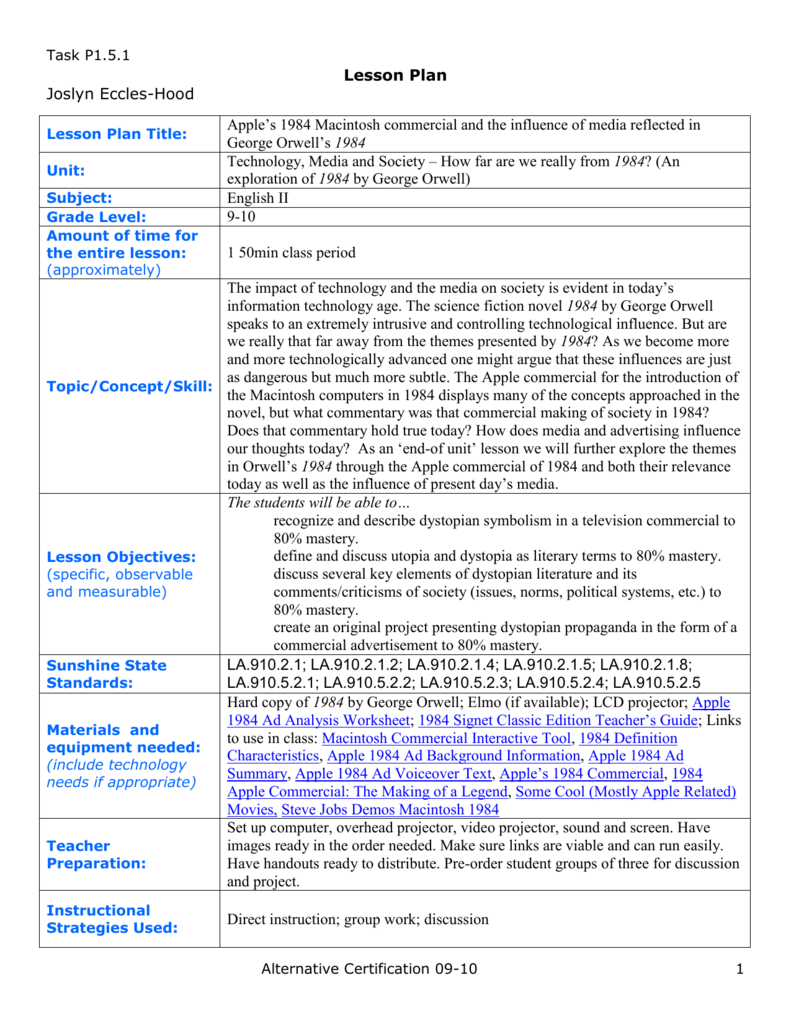
While he slowly recognized his repressed thoughts and emotions and they flourished with triggering signs and songs, Winston simply became a product of his environment due to his lack of control in a rigid society that does not tolerate straying from the norm.Īs Orwell continues to explore “the darker regions of the psyche” (Carpentier) in Winston’s mind, he details how his subconscious thoughts about desire heavily dictate his actions and how he goes about making decisions. Orwell precisely crafts his character to demonstrate his conspicuous flaw as a desperate man seeking immediate change. While he may come to terms with his inner subconscious, Winston only “condemns himself to becoming its victim” when he attempts to rebel against the system. As the Thought Police forbids the people of Oceania from speaking to one another freely, using constant psychological monitoring in the form of mind control, this forces Winston to confront his internal thoughts and question whether or not anyone has a similar thought process to his.

Depictions of the Party attempting to brainwash citizens are evident as the “control of language is a method of controlling consciousness that necessitates secrecy and the use of alternative sign systems to communicate” (Carpentier). This portrayal of the Freudian Slip causes Winston to fear the government’s punishments, simultaneously sparking a rebellious streak within him. Telescreens and songs projecting the ideologies of the Party further bombard Winston’s consciousness as these textual and visual signs remain “represented in an obsessively triadic structure” (Carpentier). Winston even asks himself “what were his his true feelings towards Big Brother?” (Orwell 355), indicating a change in his level of consciousness in processing his emotions. As he moves through the monotonous rituals of everyday life, “his secret loathing of Big Brother” (Orwell 19) is what drives him to piece together his despair in wanting freedom from the oppressive totalitarian society. Numerous symbols and pictures, as well as employed language, challenge Winston’s ability to think properly like the rest of the citizens of Oceania as his thought process naturally challenges the rigid conformity instilled in the people. Freud’s research and theories, practiced for centuries, provide monumental insight into how and why people, especially characters of novels, think and act a specific way.

The idea of the Freudian Slip explains how certain symbols and languages cause these unconscious desires to become apparent, which can “lead to mental disturbances if they go unresolved” (“Sigmund Freud”).

Freud even theorized that dreams provide understanding of one’s unconscious desires, referring to them as the “royal road to the unconscious” (Doorey). Unconscious thoughts lead to processes that are automatic, even if there is not an immediate answer for why people do certain things. In other words, it is a natural process that explains why certain things trigger humans to exhibit peculiar behavior. It is irrational and yet it is just this part of human nature that controls most behavior” (Doorey). He theorized that “the unconscious is the seat of all human impulses, instincts, wishes, and desires, of which people are usually unaware. The idea of how the mind processes emotions and thoughts initially fascinated Freud, especially how the unconscious provides tremendous insight into how humans feel and process different emotions. Freud’s psychological theories concerning the subconscious mind, as well as the Freudian Slip, give leeway to the thought process and actions of Winston who struggles to come to terms with his desires in a totalitarian society built on the fundamental principles of absolute mind control. Outlined in Sigmund Freud’s theories of of the unconscious, Winton’s natural instincts and desires emerge from underneath the surface, forcing him to inevitably deal with the consequences. George Orwell explores Winston Smith’s subconscious in 1984, detailing how he eventually comes to terms with the total torment of his society. Whether one is aware of their subconscious trail or not, it can severely impact the way they think and see the world.

The power of one’s subconscious has the ability to strongly influence how they perceive society and act in their environment. Get custom essay A Psychological Analysis of Winston Smith’s character in 1984


 0 kommentar(er)
0 kommentar(er)
